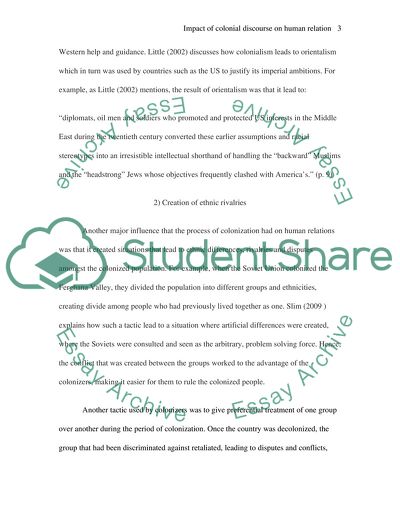Cite this document
(Impact of Colonial Ideology Term Paper Example | Topics and Well Written Essays - 1750 words, n.d.)
Impact of Colonial Ideology Term Paper Example | Topics and Well Written Essays - 1750 words. Retrieved from https://studentshare.org/sociology/1735113-provide-your-understanding-as-to-how-colonial-discourse-and-ideology-shaped-and-codified-human-relation
Impact of Colonial Ideology Term Paper Example | Topics and Well Written Essays - 1750 words. Retrieved from https://studentshare.org/sociology/1735113-provide-your-understanding-as-to-how-colonial-discourse-and-ideology-shaped-and-codified-human-relation
(Impact of Colonial Ideology Term Paper Example | Topics and Well Written Essays - 1750 Words)
Impact of Colonial Ideology Term Paper Example | Topics and Well Written Essays - 1750 Words. https://studentshare.org/sociology/1735113-provide-your-understanding-as-to-how-colonial-discourse-and-ideology-shaped-and-codified-human-relation.
Impact of Colonial Ideology Term Paper Example | Topics and Well Written Essays - 1750 Words. https://studentshare.org/sociology/1735113-provide-your-understanding-as-to-how-colonial-discourse-and-ideology-shaped-and-codified-human-relation.
“Impact of Colonial Ideology Term Paper Example | Topics and Well Written Essays - 1750 Words”. https://studentshare.org/sociology/1735113-provide-your-understanding-as-to-how-colonial-discourse-and-ideology-shaped-and-codified-human-relation.


